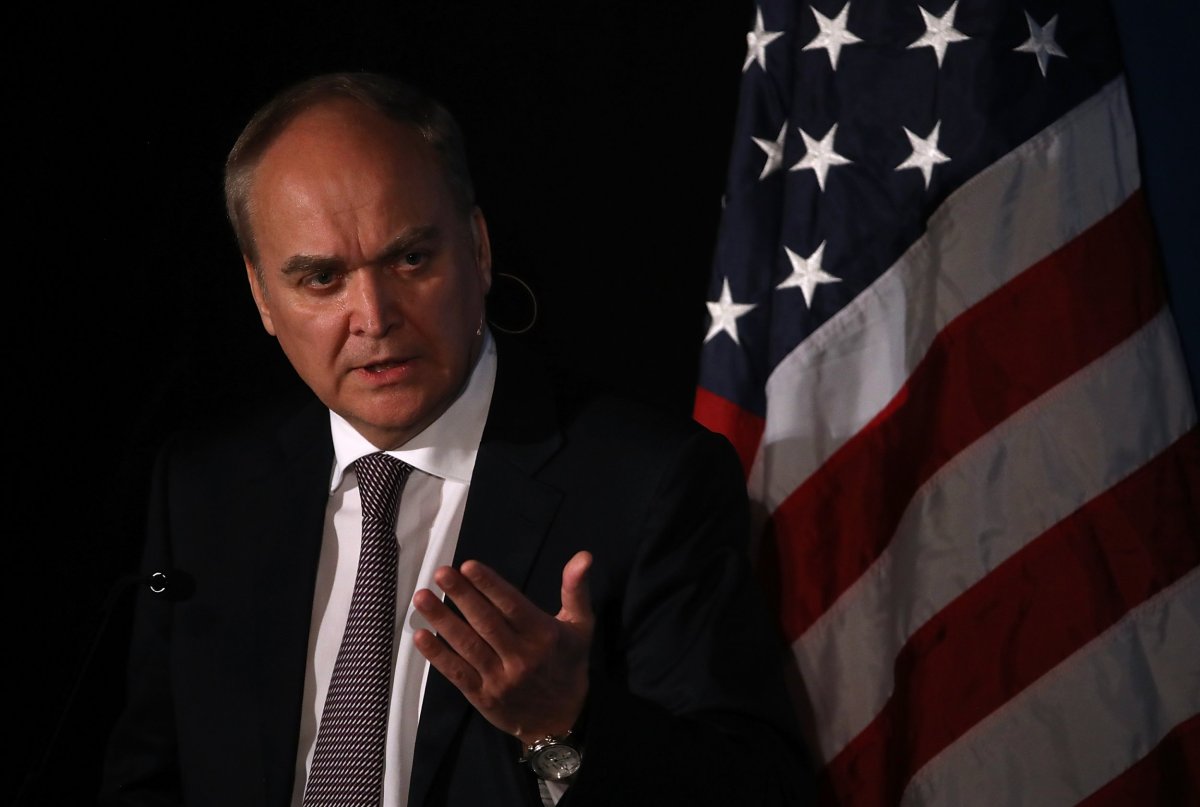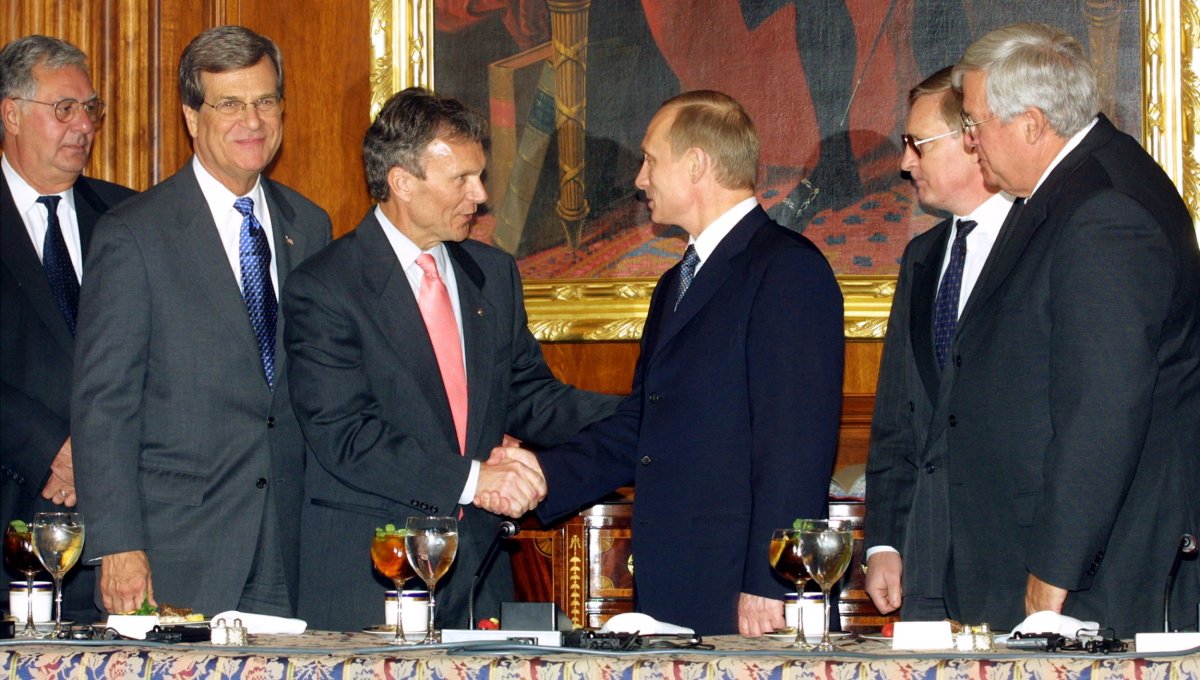Russia's envoy to the United States said Friday his government was looking to meet with the newly elected U.S. Congress in order to end what he described as a period of historically heightened tensions between the two powers.
Russian ambassador Anatoly Antonov told an annual meeting of the U.S.-Russia Business Council in New York that there was a new opportunity to mend strained relations between Moscow and Washington, now that "the midterm elections are now over" and "new people will join the U.S. legislative branch." The remarks came amid longstanding efforts by the heads of both countries to reset their relationship despite ongoing allegations that the Kremlin had interfered in the most recent U.S. presidential election.
"We live in unprecedented times of complicated and difficult relations between Russia and the U.S. If we look at certain characteristics, they are even worse than during the Cold War era," Antonov said, arguing that "fake news" surrounding Russian interference were still being "used an instrument of U.S. domestic political warfare."
"We stand ready to work with the new composition of the House and Senate to develop mutually beneficial contacts, to seek converging stances on any, even the most complicated issues," he added. "In the nearest time, I wish to meet with the leadership of the House of Representatives and Senate for a serious discussion on ways to mend the Russia-U.S. relations, restore inter-parliamentary dialogue between our countries."

U.S. and Russia's tense relationship in the 20th century briefly entered a period of detente with the fall of the Soviet Union in the early 1990s, a decade that would prove tumultuous for Moscow. As Russian President Vladimir Putin entered his first term at the turn of the millennium, he sought to restore the country's global standing. However, ties between the world's foremost military powers again went into decline, souring especially in 2014 following Moscow's decision to annex the Crimean Peninsula from Ukraine amid political unrest there.
These relations fell out further following the 2016 presidential election, which U.S. officials have accused the Kremlin of attempting to influence in favor of then-Republican candidate Donald Trump. The real estate baron entered office expressing admiration for Putin, but ongoing investigations into their alleged collusion and differences in policy have often left them at odds.
Under Trump, the U.S. has laid further sanctions against Russian individuals and industries and again accused Moscow of interfering in U.S. politics by trying to affect the outcome of the midterm elections, held earlier this month. This year's vote saw Democrats take control of the House of Representatives, while Republicans maintained a majority in the Senate.
Trump has also announced his intention to pull out of a major arms treaty, the Intermediate-Range Nuclear Forces (INF) treaty, signed in 1987 by the U.S. and Soviet Union. The U.S. and Russia both accuse one another of violating the agreement—which bans the deployment of land-based missile systems ranging from 310 to 3,420 miles—but the White House's desire to leave has left Russian officials warning they could respond by bolstering their own military infrastructure.
The move would come after the U.S. already scrapped the 1972 Anti-Ballistic Missile Treaty in 2002 and the 2015 Iran nuclear deal, known officially as the Joint Comprehensive Plan of Action, in May. The Trump administration has also reportedly considered not renewing the New Strategic Arms Reduction Treaty (START)—originally signed in 1991, renewed in 2010 and next up for review in 2021—and has followed in previous footsteps by not ratifying the 1996 Comprehensive Nuclear-Test-Ban Treaty.

Hostile rhetoric swapped between the U.S. and Russia, as well as the potential abandonment of the INF and other international agreements, have left a number of officials and commentators from both countries discussing the emergence of a second Cold War, including potential repeats of infamous nuclear brinkmanship such as the Cuban Missile Crisis of 1962.
"Stabilization of Russia-U.S. ties is necessary not only to the Russians and the Americans, but also to the entire world. As largest nuclear powers and permanent members of the UN Security Council, we bear a special responsibility for maintaining strategic stability and security on the planet. Lack of a full-scale bilateral dialogue is not only abnormal, but also dangerous, considering the current international 'turbulence' and multiple regional crises," Antonov told Friday's gathering.
"It is especially important now, when the architecture of treaties and agreements on arms control and non-proliferation became fractured," he added. "First and foremost it involves the situations with the INF Treaty, the New START, the CTBT and the JCPOA, as well as other documents. There has not been an instance in history, when a collapse of arms control and non-proliferation agreements led to [the] strengthening of global stability."
Uncommon Knowledge
Newsweek is committed to challenging conventional wisdom and finding connections in the search for common ground.
Newsweek is committed to challenging conventional wisdom and finding connections in the search for common ground.
About the writer
Based in his hometown of Staten Island, New York City, Tom O'Connor is an award-winning Senior Writer of Foreign Policy ... Read more
To read how Newsweek uses AI as a newsroom tool, Click here.








